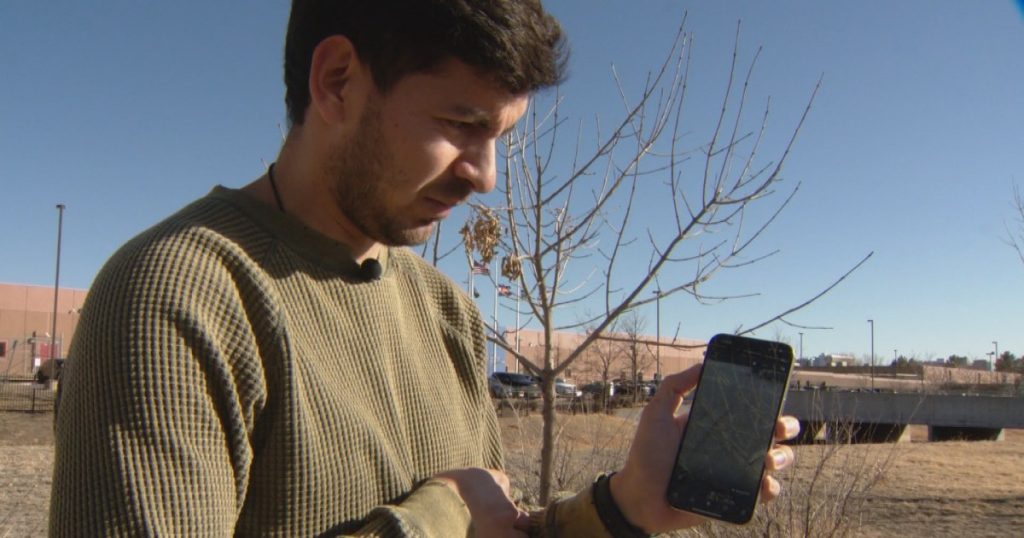The recent reports and videos highlight the ongoing tension and challenges surrounding immigration policies in the United States, particularly under the Trump administration. One of the main themes is President Trump’s reported frustration over the relatively low deportation numbers, despite his administration’s efforts to ramp up immigration enforcement. This dissatisfaction seems to stem from the administration’s broader goal of stricter immigration control, which has been a cornerstone of Trump’s political agenda. The content also features footage of Immigration and Customs Enforcement (ICE) raids in various cities, including Denver and Aurora, where federal agents have been targeting undocumented immigrants. These operations have sparked fear and confusion among immigrant communities, with many facing detention or deportation, even in cases where individuals have pending asylum claims or legal documentation.
The impact of these ICE raids is vividly captured in the personal stories of those affected. For instance, a South Carolina man was caught impersonating an ICE agent, adding to the climate of fear and mistrust. In another incident, a Maryland pastor described the emotional toll on community members, stating that many are “scared, frightened, and confused” as they face the sudden disappearance of friends and family. These stories humanize the broader debate over immigration policy, reminding us that the numbers often cited in political discussions represent real people with families, jobs, and aspirations. The raids have also drawn criticism from local leaders and advocacy groups, who argue that such operations disrupt communities and undermine trust in law enforcement.
The content also touches on the complexities of international cooperation in addressing immigration. Guatemalan and Salvadoran leaders have reportedly agreed to accept deportees from the U.S., with some even offering to house American criminals. However, this approach raises ethical and logistical concerns, as deported individuals often face precarious living conditions and limited opportunities in their home countries. Additionally, the U.S. has announced plans to end protected status for Venezuelan migrants, a move that could force hundreds of thousands to return to a country still grappling with political and economic turmoil. These policies reflect the administration’s focus on border security and deportation as primary solutions to immigration challenges, but critics argue that such measures fail to address the root causes of migration, such as poverty, violence, and instability in Central and South America.
Local and federal authorities have faced resistance from communities and advocacy groups opposed to the aggressive enforcement tactics. In Chicago, a federal immigration order halted the operations of a refugee relief organization, raising concerns about the broader impact on vulnerable populations. Meanwhile, in New York, ICE agents arrested undocumented migrants, further intensifying the climate of fear. These actions have been met with outrage from immigrant rights groups, who argue that such raids are indiscriminate and often target individuals who pose no threat to public safety. The White House has insisted that its deportation efforts are focused on violent criminals, but critics point to cases where individuals with no criminal history have been detained and deported, leaving families separated and livelihoods destroyed.
The content also highlights the emotional and psychological toll of these policies on Dreamers, young undocumented immigrants who were brought to the U.S. as children. Many have resorted to traveling to Mexico in an attempt to maintain their status and stay in the U.S., a strategy that reflects the desperation and uncertainty faced by this group. Meanwhile, federal agents continue to carry out ICE raids in cities like Denver, where apartment buildings have been targeted in large-scale operations. These raids have left communities on edge, with many residents feeling a sense of besiegement and helplessness.
In summary, the content paints a picture of a nation deeply divided over immigration policy, with the Trump administration pursuing an aggressive agenda of deportation and enforcement. While the administration frames these efforts as necessary for national security and the rule of law, critics argue that they disproportionately harm vulnerable populations and fail to address the complex roots of migration. As the raids and deportations continue, the human cost of these policies becomes increasingly evident, with families separated, communities disrupted, and individuals left to navigate a system that often seems arbitrary and unforgiving.









